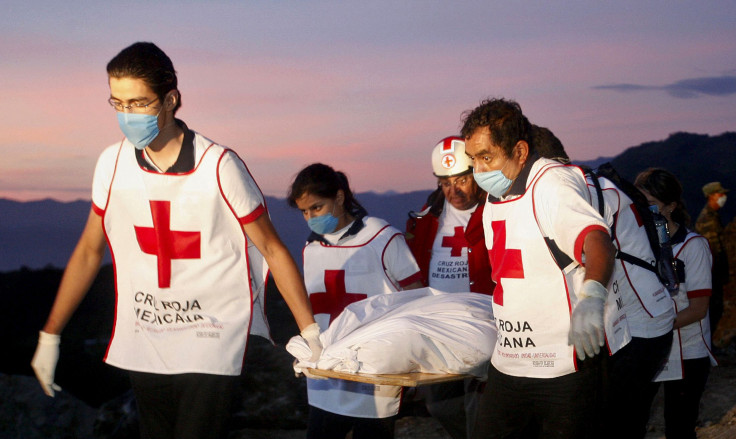Red Cross Talks To Debate New Mechanism For Upholding Laws Of War

GENEVA (Reuters) - States are divided about an attempt to improve compliance with the rules of war, a non-binding but contentious issue at the heart of an international conference next week, senior Swiss and Red Cross officials say.
The Dec. 8-10 meeting will consider a resolution to hold an annual meeting of states that have ratified the Geneva Conventions to report on how they are enforcing its provisions to protect civilians, prisoners and the wounded in armed conflict.
Russia is leading an effort to defeat or dilute the proposal, diplomats said. India, Cuba and Belarus are among the countries backing Russia.
"There is a glaring vacuum at the heart of the Geneva Conventions system," said Valentin Zellweger, the head of the Directorate of International Law at the Swiss foreign ministry.
The 196 states that ratified the landmark 1949 Geneva Conventions come together every four years at an international conference but have no other dialogue on pressing humanitarian issues, he told a panel at the Graduate Institute of Geneva on Friday.
There is "serious resistance among states" to the plan to strengthen compliance, put forward by Switzerland and the International Committee of the Red Cross (ICRC), Zellweger said.
"The proposal now on the table is frankly rather soft. It is a voluntary system," he said. "We will see next week if states can consent or choose to stay behind.
"A Russian proposal was submitted yesterday (Thursday). To a certain extent it is a counter-proposal," he added, declining to elaborate.
The United States, Britain, France and to a lesser degree China support the ICRC proposal at the conference. Resolutions at the conference are usually adopted by consensus but can be voted on, diplomats said.
The new mechanism would be the first modification in nearly 40 years, since additional protocols to the Geneva Conventions were agreed in 1977.
"We have a historic chance to build a mechanism that has been missing for 60 years. It's not going to revolutionize everything, but it is a really important step in working towards compliance with international humanitarian law," Dr Helen Durham, the ICRC's Director of International Law and Policy, told Reuters.
"Most international treaties have reporting mechanisms, many of the human rights treaties and others. The Geneva Conventions have never had that. So we're filling a missing gap," she said.
The mechanism would pave the way for states to hold thematic discussions and exchange "best practices", she said, while noting it was still "very controversial".
"What's important is that it comes from our experience in the field, in the sense of listening to what our 14,000 colleagues in some of the worst war zones tell us. It's the issue of the lack of compliance with international humanitarian law."
Professor Marco Sassoli, a professor of international law at the University of Geneva, regretted that a binding instrument was not even on the table.
"The Geneva Conventions were adopted in 1949 when it was already the Cold War. The Soviet Union was represented by Stalin. And we were able to adopt treaties for international armed conflicts," he told the panel.
© Copyright IBTimes 2024. All rights reserved.





















